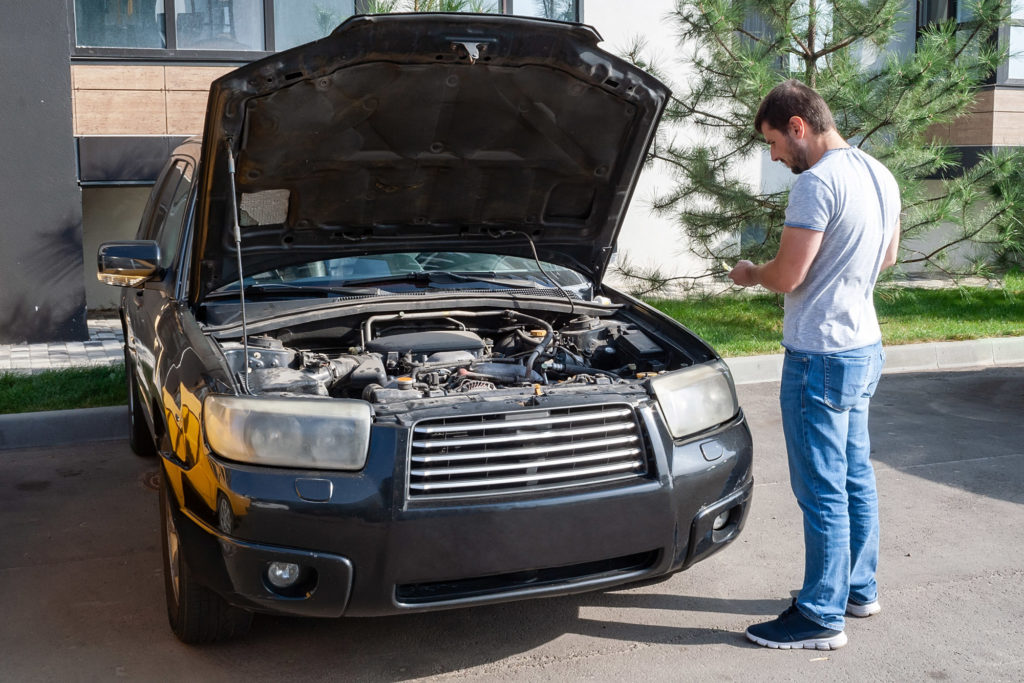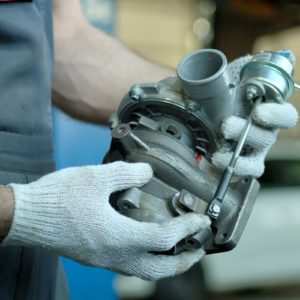A “rebuilt title” is a term you might encounter if you’re looking to buy a used car or if you’d like to sell or drive a totaled car. But what is a rebuilt title? When should you get it and how can you get it? Get the lowdown on this type of car title.
What Is a Rebuilt Title?
A rebuilt title indicates that a totaled car is roadworthy again after undergoing repair.
Insurance companies can declare that a vehicle is a total loss once the cost of repairing it is greater than the value of the vehicle. The totaled vehicle is usually issued a salvage title.

A vehicle has to have a salvage title before its owner can apply for a rebuilt title. Vehicles with a salvage title are often sold to companies or people that want to repair them.
Aside from salvage and rebuilt titles, vehicles can also have clean titles. A clean title indicates that the vehicle has little to no damage.
Some states might use different terms for rebuilt titles. The alternative names include the following:
- Rebuilt salvage
- Reconstructed
- Restored salvage
- Revived salvage
- Rebuilt from salvage
When Should You Get a Rebuilt Title?
If you have a vehicle that was declared a total loss and you want to sell or drive it again, you’ll have to get a rebuilt title.
How to Get a Rebuilt Title
The process and requirements for getting a rebuilt title can vary per state, so read up on the rules that apply to your state. To give you examples, here are quick guides on how to get a rebuilt title in Florida and Michigan:
Rebuilt Title in Florida
To get a rebuilt title in Florida, you’ll have to get a temporary license plate so that you can drive your ride to a rebuilt vehicle inspector in your area. You’ll also have to call the Florida Highway Safety and Motor Vehicles (FLHSMV) to let them that you’re meeting with an inspector.
After that, you can set an appointment with your local DMV compliance examiner. Once the application is approved, they’ll affix a decal on your vehicle, so it’s easy to identify that it’s a rebuilt vehicle.

Here are some of the things you’ll need to apply for a rebuilt title in Florida:
- Any bill of sale or proof of ownership, original title
- Completed application form (Form HSMV 82040)
- Statement of Builder (Form HSMV 84490) – The mechanic who did the repairs is the one who should complete this form.
- Receipts for all the replaced parts
- Documentation or pictures of the car before it was repaired
- Inspection fee and Florida sales tax
Note that these are the requirements as of this article’s writing. Please visit the FLHSMV website for more information.
In Florida, lying about the state of a vehicle is considered a felony. So if you’ve recently rebuilt a salvage vehicle, make sure that you declare its status, especially if you plan to resell or drive it again. Getting a rebuilt title for it will also help you attract more buyers or stay on the right side of the law when you get it back on the road again.
Rebuilt Title in Michigan
To get a rebuilt title in Michigan, a certified Michigan salvage vehicle inspector must inspect the vehicle. First, you’ll have to accomplish a form (TR13-A) or the application for salvage vehicle inspection. A certified mechanic should attest that the repairs were done properly.

Once you’ve presented all the requirements, you’ll get an inspection schedule for your vehicle. Note that it’s illegal to drive your vehicle even if it has a salvage title. You’ll have to wait for the rebuilt title from the secretary of state before you can get your ride back on the road.
Here are some of the things you’ll need to apply for a rebuilt title in Michigan:
- Completed Application for Salvage Vehicle Inspection (TR13-A) – Make sure your mechanic completed part 4 of this document to certify the repairs
- Completed Salvage Vehicle Recertification (TR13-B)
- Salvage title
- Title fee
Pros and Cons of Buying a Rebuilt Vehicle
Now let’s look at the other side of the coin. If you’re in the used car market for a new ride, should you consider a vehicle that has a rebuilt title? Is a rebuilt title bad? To help you make an informed decision, here are some of the advantages and disadvantages of buying a vehicle with a rebuilt title:
Pro
More Affordable
If there’s one advantage to buying a rebuilt vehicle is that it is cheaper compared to those with clean titles. According to Kelley Blue Book, cars with rebuilt titles are around 20% to 40% cheaper than those with clean titles.
Cons

Low Market Value
If you buy a car with a rebuilt title and end up wanting to sell it, you’ll have a hard time looking for buyers. Simply declaring that the car was damaged in the past will automatically pull down its resale value. It’s the reason why car dealers seldom accept rebuilt vehicles as a trade-in.
Hard to Get an Insurance
Getting insurance for a rebuilt car can be difficult. Even if a rebuilt vehicle is in good condition, it might still be more vulnerable to issues than a car with a clean title. Some companies will give insurance to rebuilt vehicles, but the coverage is usually not extensive. They also usually charge higher premiums and only offer liability coverage.
Almost Impossible to Get a Loan
Cars with rebuilt titles aren’t for those who plan to get financing or loan assistance. Rebuilt vehicles are considered “high-risk” vehicles, so lenders are going to think twice before approving your loan. If you’re lucky enough to find a lender, they’ll likely charge you high-interest rates.
High Repair Cost
Although buying a vehicle with a rebuilt title is more budget-friendly, you might still end up spending more on repairs. So if you’re planning to buy a rebuilt vehicle, make sure that they have all the necessary paperwork that proves that the vehicle is indeed roadworthy.
Any information provided on this Website is for informational purposes only and is not intended to replace consultation with a professional mechanic. The accuracy and timeliness of the information may change from the time of publication.


















